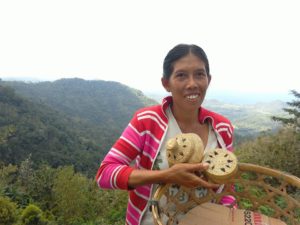The Last Tourist

“An ethical traveller isn’t selfish. They don’t just see travel as being about them. Their trip is shared not only with other travellers but with residents and with the environment”
– Arnie Weissmann, Travel Weekly
I recently watched The Last Tourist documentary on a plane.
It is a must watch for anyone who travels too, as it provides us with a lot of important things to consider and reminders about the choices that we make as travellers.
You might recall the blog post ‘what not to do’? It looked at ethics when we travel. It asked ‘What should you never do when travelling, because it’s not morally right?
The film uses a slogan ‘Travel has lost its way’. And it may just have a point. We shouldn’t be travelling on regardless, and to hell with the expense to other people or the environment.
A huge part of travelling for us has always been about gaining an insight into a place, a culture and its people. We’ve spent many years living and working in developing countries and we’ve seen first hand how important tourism is for their communities and economies.
When we lived in Nairobi we had the opportunity to visit the township of Kibera. We never felt comfortable with the idea of going to take a closer look at someone living in poverty. We didn’t go. Would you?
We’ve made conscious decisions about how to travel. We’ve always tried to consider the impact of tours and tourist activities on local communities.
When we lived in S.E.Asia, we had the option to travel as a group to a national park, where we were assured that we would see Sumatran elephants. But on researching the park, I read that the elephants were only found with ease because they were chained to the spot, just so that tourists could take photos.
We made a unanimous decision not to go to the national park.
Bottom line, if an animal or a human is suffering in any way for your tourist pleasure, it’s really not a good idea.
I’m not for one second suggesting that we’ve always got it right. But we have tried to think about the decisions that we’ve made as travellers and how it impacts on the local community.
Have you wondered about the ‘bargain price’ of your all inclusive resorts or Cruise liner? How are staff treated? Your ‘bargain’ holiday may just be at a cost to someone else. Remember, ‘cheap’ is typically expensive for someone.
The Last Tourist exposed how so many cruise ship companies warn passengers against buying from locals and give them money off vouchers at particular ‘reputable’ shops on shore (who then give a commission to the cruise liner). In those cases the tourist dollars that could go into the local community goes straight back to the big companies, the end result being the exact opposite of empowering local people through trade.
In the film people make a series of pledges. These are some examples…
“Travel responsibly”
“Make travel decisions that align with my personal values”
“I commit to supporting women led businesses and fair trade whenever I possibly can”
“Refuse housekeeping”
“Choose a group tour that works with locals”
“Never participate in cruel animal led practices”
We’ve made pledges in recent years too.
We opt to buy local. We always wander in a new place and seek out the traders or market stalls that provide local people with an income. We typically buy consumables from small, family run convenience stores, and while this may be slightly more expensive than getting things in a supermarket, it supports that family’s livelihood.
We pledged some years ago to cut our long haul travel to one ticket per year. We continue to be committed to reducing our global footprint by using public transport for most of the year and travelling regionally for most trips. Train travel has become our preferred form of transport.
How could we all do more?
The documentary talks of research and that’s very important. We could all spend much more time to look into the choices that we make for our holidays; accommodation, tours, excursions, looking for ethical and sustainable options.
Tourism can empower members of a community and redistribute wealth. Wouldn’t that be a great thing, especially in the developing world?
But the tourist industry might exploit people too. Tourism can sometimes have a negative impact, and we want to be sure that we are in no way contributing to that.
We have choices when travelling. Our world has so many problems The very least we can do as travellers, is not to contribute to these.
What will you pledge to do differently on future trips?
© Maggie M / Mother City Time